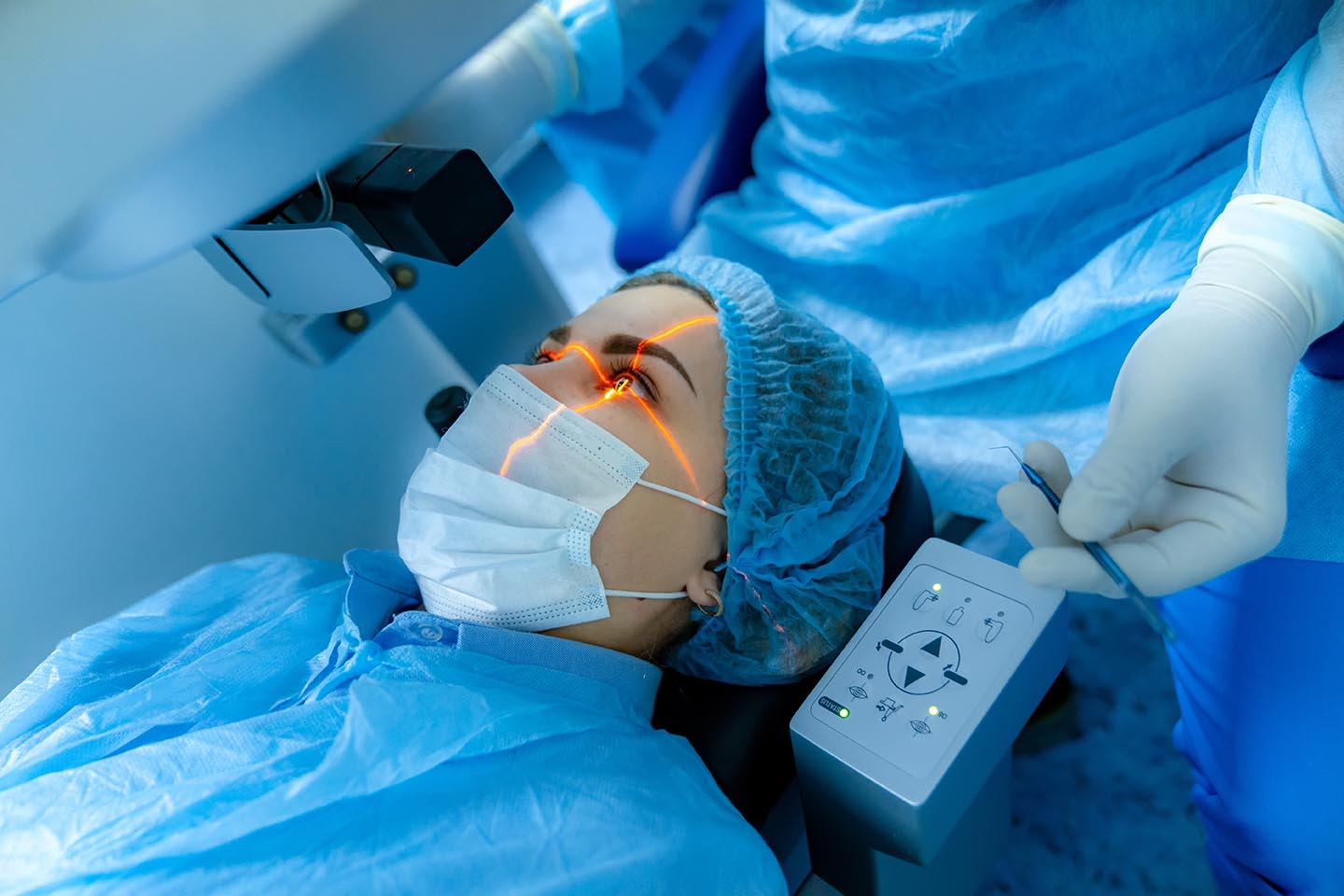
What To Know Before LASIK Surgery
Laser-assisted in situ keratomileusis (LASIK) surgery is the best-known and most common method for permanent vision correction. It features a special type of cutting laser to change the shape of the cornea to correct refractions that cause blurry vision.
LASIK is a very quick and simple procedure, but there are a lot of things to consider when deciding whether or not to have it. And once you've decided to do it, knowing how to prepare for surgery can be very beneficial.
Should You Consider LASIK Surgery?[Hb1]
If you are at least 18 years old, not pregnant and in general good health, and you are someone who suffers mild vision problems, you may want to consider LASIK surgery.
You should consider LASIK if you:
· Have glasses or contacts and are tired of wearing them.
· Have a moderate refractive error and no unusual vision problems — you should be within certain limits for nearsightedness, farsightedness and astigmatism.
· A stable vision prescription — meaning it hasn’t changed in the last two years.
You should also be aware of the many conditions and risks that would not make the operation worthwhile. These will be addressed in your pre-operation baseline evaluation with an eye care professional.
Preparing for the Operation: What to Expect and Helpful Tips[Hb2]
Before going through with LASIK, you have to go to a baseline evaluation with an eye care professional. If you are concerned or unsure about any of the aforementioned factors, they will be addressed during the consultation.
The Baseline Evaluation
Your eye care professional will ask about the details of your medical history and medications you take. It’s imperative you don’t leave out any details; it is super important your doctor knows everything to ensure a procedure is safe.
The eye care professional will also provide specific pre-operation instructions, such as telling you to stop wearing your contacts and eye drops leading up to the surgery date. For your safety, it is best you follow their exact directions.
Perfect vision from this surgery isn’t guaranteed. If your doctor promises it, consider it a red flag and look for a new provider. It’s important you carefully research your local eye care options prior to scheduling a consultation.
Here are some pre-surgery tips:
Drink More Water
Laser eye surgery can make your eyes more susceptible to dryness. Try to drink a little more water than you normally would or at least be mindful of how hydrated you are.
Don’t Drink Caffeine
Even though you are awake and will need to concentrate during the operation, you will want to be relaxed and will need to sit still. Plus, caffeine can be dehydrating.
Don’t Drink Alcohol
Like caffeine, alcohol dehydrates you. Also, your surgeon will give you an oral sedative right before the operation to help you relax, which isn’t safe to mix with alcohol.
Get A Driver
You’ll need one after the operation, as your vision will be impaired for some time. We recommend asking a friend or family member.
Don’t Wear Makeup or Fragrance
It can interfere with the operation. Make sure you wash your face really well the night before and arrive with a fresh, clean face.
Mentally Prepare
You will be awake, need to be ready to stay focused and still and listen to the doctor’s directions. If you have surgery anxiety, check out these tips.
During
The operation itself is normally painless and should only take a few minutes per eye. Just sit back, stay awake, try not to talk or move your face and listen to the surgeon’s instructions for your safety and to get the most out of the operation.
Post-Surgery Care and Recovery
Here is what to expect in the following days after the procedure:
· Be prepared to rest for a few days – You’ll need to coordinate with your work, friends and family accordingly. But don’t worry; you should be able to resume some normal activities in less than a week.
· Some soreness may occur – Your doctor may recommend taking over-the-counter medicine.
· Your surgeon may want to schedule a follow-up appointment – After a couple of days of resting at home and letting the surgery take effect, your surgeon may want you to come back.
· Avoid water activities for up to a month – Unless you’re wearing protective goggles, you will need to take a short hiatus from swimming; perhaps consider having your surgery in the winter!
Results
The odds of you having a successful surgery are heavily in your favor, and the risk of any post-operation complications is extremely low. However, you may still need refinements. It really depends on how your vision was before the surgery. The worse your eyesight was to begin with, the more likely you will need another procedure.
Did you find this article helpful and informative? If so, visit healthyvisionassociation.com for more content and to learn more about our dedication to promoting healthy vision and overall health.
